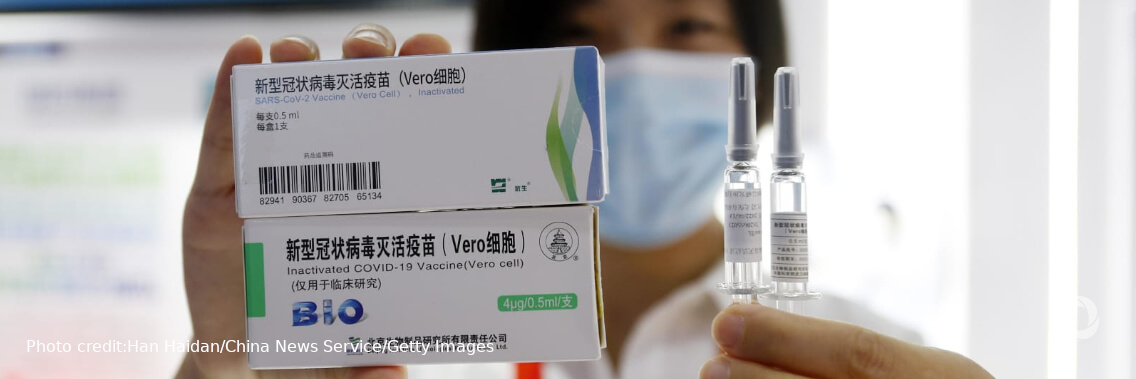On 5 February, during a telephone conversation with the Nepalese Foreign Minister, Pradeep Kumar Gyawali, Wang Yi, the Chinese State Councilor and Foreign Minister, announced that China had decided to provide the first batch of 500,000 doses of vaccine aid for Nepal.
During the announcement, Chinese Foreign Minister Yi stated that China is also willing to facilitate the purchase of vaccines for Nepal. Both sides positively evaluated the progress of bilateral relations and exchanged views on issues of common interest, a representative of the Chinese Embassy in Nepal disclosed.
Developed by Sinopharm, the current results of Phase III of the clinical trials of this vaccine reveal that, after a two-dose inoculation procedure, it shows 79.34% efficacy against COVID-19. Furthermore, the seroconversion rate of neutralizing antibodies is said to have reached 99.52%. This vaccine has been granted a license for marketing and been approved for emergency use in 14 countries and regions including China, the UAE, Bahrain, Egypt, Pakistan, and Hungary. On February 4, Cambodia became the latest country to approve the emergency use of the Sinopharm vaccine.
Since the outbreak of the COVID-19 pandemic, Nepal has donated 100,000 face masks to China and China has donated pandemic prevention materials including nearly 3 million masks, more than 50,000 sets of PPE, and almost 200,000 testing kits to Nepal. China has also facilitated the procurement of medical materials for Nepal. It is significant that on October 8 last year, China officially joined COVAX and on February 2 this year, at the request of the World Health Organization (WHO), China decided to provide 10 million doses of vaccine to COVAX to meet the urgent needs of developing countries.
The Chinese Embassy in Nepal is said to have been working closely with the Nepalese authorities to achieve the early delivery of the donated vaccines to Nepal in order to enhance the country’s capacity to fight COVID-19. China sees this as the beginning of further vaccine cooperation between the two countries and will provide Nepal with additional vaccines through various channels to help the country win the battle against the pandemic as soon as possible and build a community of health for Nepal and China, the Chinese Embassy in Nepal announced.
As per the interim distribution forecast made public by WHO’s COVAX facility on 3 February, Nepal is to receive a total of 2.2 million doses of COVID-19 vaccines by the end of this month which will be provided by COVAX.
Meanwhile, as many as 184,857 people have already been vaccinated with the Covishield vaccine provided by India to Nepal on 21 January. The first phase of the vaccine program in Nepal ran for 11 days during which health workers, ambulance drivers, and cleaners engaged in the frontline battle against COVID-19 were vaccinated. As per the statement issued on February 8 by the Ministry of Health and Population of Nepal, the second phase of the vaccination campaign that began today will be given to staff at diplomatic missions, UN agencies, and journalists.
In a statement made on February 8, Sara Beysolow Nyanti, United Nations Resident Coordinator (UNRC) in Nepal, thanked the government of Nepal for implementing the UN Secretary General’s guidance that calls for the inclusion of all people within the borders of the country in the national prioritization plan. “This should include all foreigners, refugees, migrants, undocumented persons, and others. We have been included and for this we congratulate the government,” she said, adding that not all governments have abided by this call by the Secretary-General.
Commenting that the United Nations system had no plans to have all staff and their dependents vaccinated this week as announced in the press, UNRC Nyanti clarified, “The UN has been working with the government to implement the global prioritization approach which has frontline and health workers as the first category to be vaccinated.”

